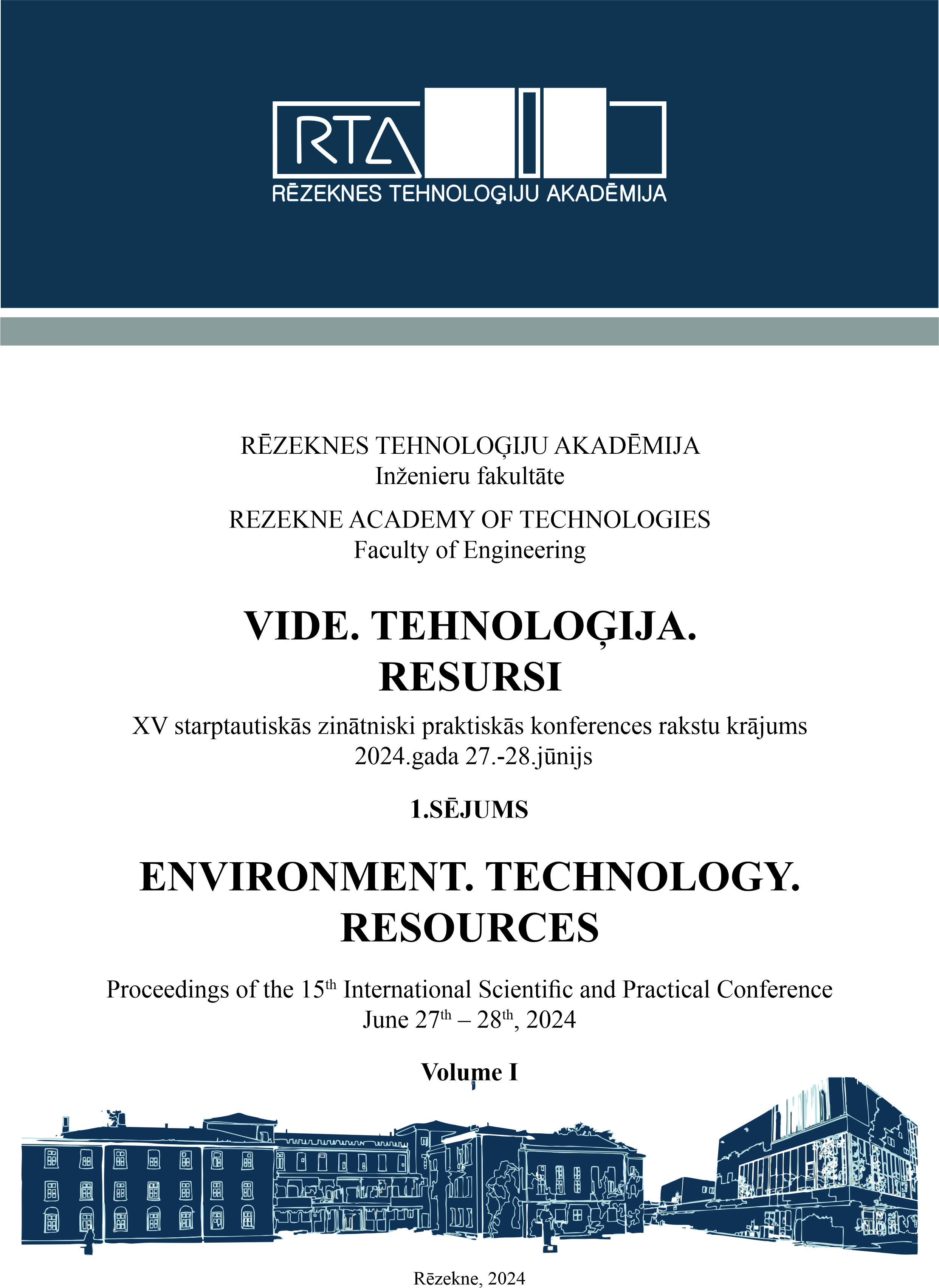SUSTAINABLE SOLUTIONS: ADVANCING IN TECH-BASED ESG REPORTING PLATFORMS
DOI:
https://doi.org/10.17770/etr2024vol1.7947Keywords:
sustainability; eco-innovation, net-zero economy, Tech-based solutions, corporate governanceAbstract
Sustainability reporting plays a crucial role in promoting ethical conduct, managing risks, and enhancing stakeholder engagement for businesses aiming for long-term success. Recent changes in European legislation, particularly the Corporate Sustainability Reporting Directive (CSRD), signal a significant shift towards aligning sustainability reporting with financial reporting to meet Sustainable Development Goals. Concurrently, advancements in Environmental, Social, and Governance (ESG) reporting processes have led to the emergence of tech-based platforms, leveraging artificial intelligence (AI), to streamline data gathering and compliance efforts among EU companies. This paper examines the potential impacts of such platforms, focusing on their role in facilitating ESG information collection for regulatory compliance. Utilizing secondary sources such as European legislative acts and relevant literature, the study also presents a case study of "Ecomate ESG platform" as an illustrative example. In addition to regulatory compliance, these platforms offer benefits such as improved efficiency and enhanced stakeholder engagement. The conclusion draws upon key findings to propose general recommendations for the future development of the ESG sector and the effective utilization of AI within it.;
Downloads
References
V.Kumar, A. Srivastava, Trends in the thematic land scape of corporate social responsibility research: A structural topic modelling approach, 2022 [Online] Available at: https://www.sciencedirect.com/science/article/abs/pii/S0148296322005215 [Accessed February 22, 2024]
E. Appiah-Kubi, Management knowledge and sustainability reporting in SMEs: The role of perceived benefit and stakeholder pressure ,2024 [Online] Available at: https://www.sciencedirect.com/science/article/abs/pii/S0959652623042257 [Accessed February 22, 2024]
A.Kolk, “The social responsibility of international business: From ethics and the environment to CSR and sustainable development”. Journal of World Business, 51(1), 23-34, 2016 https://doi.org/10.1016/j.jwb.2015.08.010
Global Reporting Initiative (GRI). GRI Standards, 2022 [Online] Available at: https://www.globalreporting.org/standards/ [Accessed February 20, 2024]
C. de Villiers, R. Dimes, and M. Molinari, “How will AI text generation and processing impact sustainability reporting? Critical analysis, a conceptual framework and avenues for future research.” Sustainability Accounting, Management and Policy Journal, Vol. 15 No. 1, pp. 96-118, 2024. https://doi.org/10.1108/SAMPJ-02-2023-0097
S.B.Banerjee, “Corporate environmentalism: The construct and its measurement.” Journal of Business Research, 55(3), 177-191, 2002. https://doi.org/10.1016/S0148-2963(00)00135-1
S.Schaltegger, and R. Burritt, “Sustainability accounting for companies: Catchphrase or decision support for business leaders?” Journal of World Business, 45(4), 375-384, 2010. https://doi.org/10.1016/j.jwb.2009.08.002
M. Curmei, C. Kurrer, Environment policy: general principles and basic framework, 2023 [Online] Available at: https://www.europarl.europa.eu/factsheets/en/sheet/71/environment-policy-general-principles-and-basic-framework [Accessed February 22, 2024]
European Commission, The European Green Deal, 2024. [Online] Available at: https://commission.europa.eu/strategy-and-policy/priorities-2019-2024/european-green-deal_en [Accessed February 22, 2024]
Directive (EU) 2022/2464 of the European Parliament and of the Council of 14 December 2022 amending Regulation (EU) No 537/2014, Directive 2004/109/EC, Directive 2006/43/EC and Directive 2013/34/EU, as regards corporate sustainability reporting (Text with EEA relevance), Available at: https://eur-lex.europa.eu/legal-content/EN/ALL/?uri=CELEX%3A32022L2464
KPMG, The KPMG Survey of Corporate Responsibility Reporting 2015. Netherlands: Haymarket Network Ltd, 2015. [Online] Available at: https://assets.kpmg.com/content/dam/kpmg/pdf/2015/12/KPMG-survey-of-CR-reporting-2015.pdf [Accessed February 22, 2024]
Financial Reporting Council (FRC). Artificial Intelligence and Corporate Reporting: How does it measure up? London, 2019. [Online] Available at: https://media.frc.org.uk/documents/AI_and_Corporate_Reporting.pdf [Accessed February 20, 2024]
N.Cucari, G. Nevi, F. Laviola, and L. Barbagli, Artificial Intelligence and Environmental Social Governance: An Exploratory Landscape of AI Toolkit, November 11, 2023. [Online] Available at: https://ssrn.com/abstract=4629933 [Accessed February 20, 2024]
Ecomate, 2024 [Online], available at: https://ecomate.eu/en/esg-sme-rating [Accessed February 26, 2024]
Downloads
Published
Issue
Section
License
Copyright (c) 2024 Mina Markova-Karpuzova, Eduard Marinov, Nikolay Kotzev

This work is licensed under a Creative Commons Attribution 4.0 International License.



